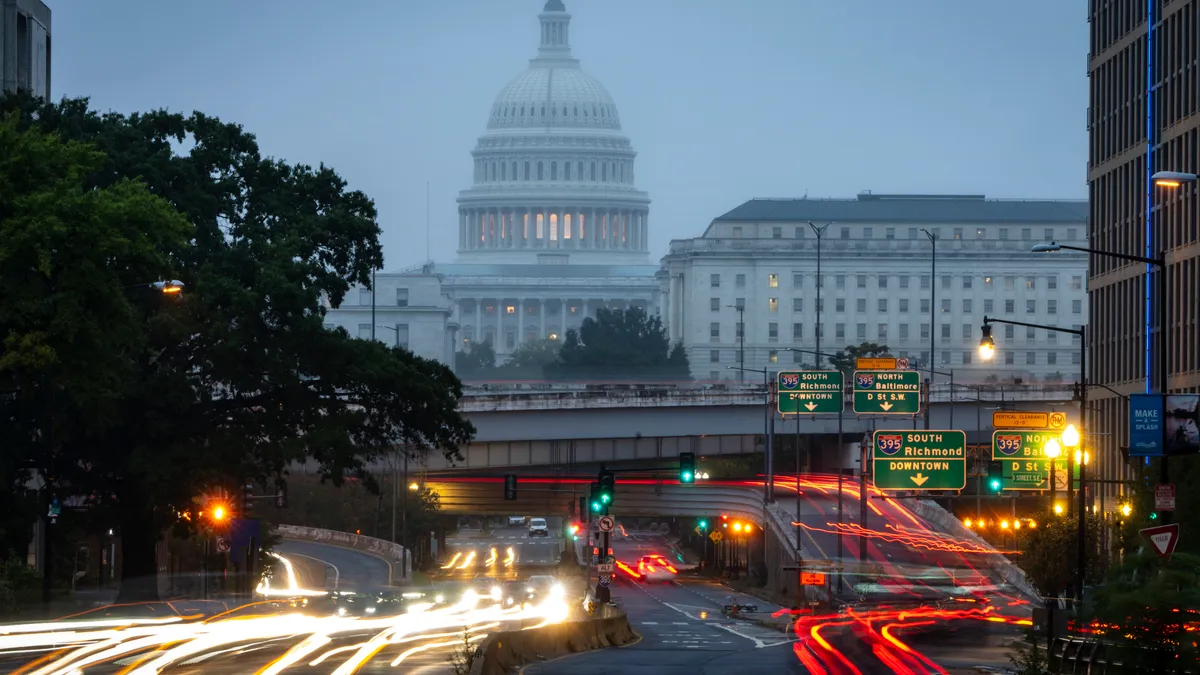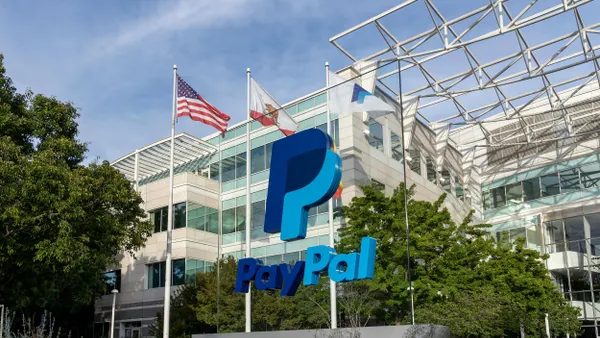Dive Brief:
- The House’s Select Subcommittee on the Coronavirus Crisis asked fintechs Blueacorn and Womply to submit documents and information by Dec. 6, detailing the steps they took to prevent fraud while processing Paycheck Protection Program (PPP) loans.
- Womply worked with 17 lenders to process 1.4 million or more PPP loans, generating fees between $1.7 billion and $3 billion, the panel said in a letter Monday. Meanwhile, Blueacorn processed at least $14 billion in PPP loans throughout the program, while taking $1 billion in fees in 2021. Together, the fintechs processed one-third of the program’s loans this year, the subcommittee said in a press release.
- The panel cited an August study by researchers at the University of Texas, Austin, that found fintech lenders were almost five times more likely to be linked to suspicious PPP loans than traditional banks. Nine of the 10 lenders with the highest rates of suspicious PPP loans were fintechs, the researchers found.
Dive Insight:
Monday’s letters represent an expansion of a probe into potential PPP loan fraud the subcommittee launched in May. The panel, at that time, sent letters in May to Kabbage, BlueVine, Cross River Bank and Celtic Bank seeking documents and information regarding the fintechs’ handling of PPP loans. The move came weeks after Reuters reported the Justice Department was investigating whether Kabbage and other fintechs miscalculated the amount of PPP aid to which borrowers were entitled.
“I am deeply troubled by reports alleging that financial technology (FinTech) lenders and their bank partners failed to adequately screen PPP loan applications for fraud,” the subcommittee’s chairman, Rep. Jim Clyburn, D-SC, wrote in Monday's letters. “This failure may have led to millions of dollars worth of FinTech-facilitated PPP loans being made to fraudulent, non-existent, or otherwise ineligible businesses.”
One-third of PPP loans that passed through Womply’s largest lending partner had indicators of fraud, including loans made to “businesses that claimed they paid workers significantly more than their industry’s norm [or] to businesses that lacked a state business registration,” Clyburn wrote.
For Blueacorn, that proportion was nearly half, he wrote.
“As we reviewed increasing volumes of loan applications, we learned, adapted and enhanced our fraud detection capabilities and protocols,” Blueacorn said in a statement seen by American Banker. “Along the way, we partnered with the [Small Business Administration] and other authorities to ensure the integrity of the PPP while providing a traditionally overlooked population with access to the funds they needed and deserved.”
A company spokesperson said the fintech is cooperating with the investigation.
Womply did not immediately respond to a request for comment from the publication.
The subcommittee wants the fintechs to submit documents and policies that established and governing their PPP application review and approval processes, or that detailed the companies’ fraud-identifying controls. It also seeks emails, chat room logs and other messages concerning potential PPP loan fraud, as well as minutes from meetings in which loan fraud was discussed.
The panel wants the companies to describe the indicators the fintechs’ automated systems used to trigger a fraud-related flag, and how many applications were rejected as a result. It wants to know how many employees were dedicated to anti-money laundering or fraud compliance and the training materials they were given. The panel also wants the fintechs to detail how they recruited PPP loan applicants, and any incentives offered for PPP loan processing — including to executives based on an increase in profits or volume from loan-processing business.














